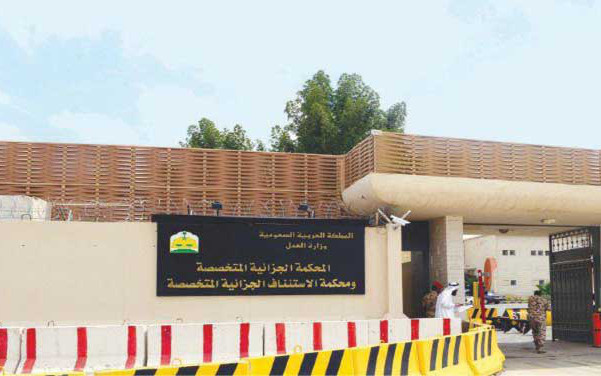5 July 2018 – In May 2018, the Saudi government arrested nearly a dozen women’s rights activists for their work promoting women’s rights, only weeks before it lifted the ban on women driving. However, the campaign against women’s rights activists has not concluded, with officials arresting prominent women’s rights activist Hatoon al-Fassi on 27 June. In addition to al-Fassi, security forces re-arrested human rights defenders Khalid al-Omair and Saudi Civil and Political Rights Association (ACPRA) co-founder Omar al-Saeed, as well as poet Ali Abbar Shammari and several businessmen, likely for making comments critical of the government. Americans for Democracy & Human Rights in Bahrain (ADHRB) condemns this continuing clampdown on activists and calls on Saudi Arabia to immediately and unconditionally release all detained rights defenders and dissidents.
Officials arrested Hatoon al-Fassi on 27 June, almost a month after the arrest of nearly a dozen activists and after the kingdom lifted the ban on women driving, demonstrating the government’s continued assault on women’s rights activists. Al-Fassi is an associate professor in women’s history at King Saud University and a regular contributor to the kingdom’s al-Riyadh newspaper. She is a prominent women’s rights activist who has been actively advocating for women’s right to drive, along with their right to vote and participate in municipal elections, for many years.
The scope of the clampdown is not confined to activists who advocate specifically for women’s rights. According to the human rights organization AlQst, on 1 July, Saudi security forces detained activist Khalid al-Omair for questioning about a complaint he had filed alleging security officials had tortured him while he was previously imprisoned, before they handcuffed him and took him to prison. Al-Omair had previously been imprisoned from December 2008, when officials arrested him after he and 14 others marched through central Riyadh to protest the Israeli bombing of Gaza, until April 2017. He was due to be released in October 2016, when his eight-year prison sentence had expired, but officials did not release him until mid-April 2017; six months after his sentence had ended. In response to the government’s failure to release him when his sentence ended, he went on a hunger strike that lasted 29 days and resulted in his transfer to a counselling center in preparation for his release. While in prison, he suffered from health problems related to diabetes and from cardiac and renal pain. He also alleges that security forces tortured him.
AlQst also reports that security forces have re-arrested Omar al-Saeed, co-founder of the prominent Saudi human rights organization ACPRA. In December 2013, Saudi authorities had sentenced al-Saeed to four years in prison and 300 lashes for calling for a constitutional monarchy and for his human rights work. Although he served out his term and was released, with his recent arrest, Al-Saeed now re-joins many of ACPRA’s other co-founders in prison: Mohammed al-Qahtani, Abdullah al-Hamid, Fowzan al-Harbi, Abdulaziz al-Shubaily, Issa al-Hamid, Abdulkareem al-Khoder, Dr. Abulrahman al-Hamid, Salah al-Ashwan, and most recently Mohammed al-Bajadi. Although Saudi authorities released ACPRA co-founder Mohammed al-Bajadi in November 2015 from his four-year prison sentence given in 2012, officials re-arrested him in late May, along with nearly a dozen women’s rights activists.
Saudi Arabia’s suppression of dissent does not end with prominent activists and rights defenders, but extends to artists and businessmen who criticize the government or its policies. In addition to Hatoon al-Fassi, Khalid al-Omair, Omar al-Saeed, and Mohammed al-Bajadi, officials have reportedly also arrested Ali Abbar Shammari, a poet who wrote about a financial case involving the Saudi royal family, and several businessmen.
“The human rights situation in Saudi Arabia has always been precarious, with the government sharply restricting the rights to free expression, assembly, association, and religion. But with these arrests, which build upon waves of arrests in September, November, and May, it has become clear that Crown Prince Mohammed bin Salman is not seriously interested in reform. Instead, it is apparent that he is intent upon exercising even greater control over Saudi society and public and private space,” remarks Husain Abdulla, Executive Director of ADHRB. “But, regardless of Mohammed bin Salman’s ambitions, Saudi Arabia must abide by its international obligations to respect fundamental human rights. To this end, it must release all those detained solely for making critical comments. Where the Saudi government shows itself unwilling to do so, we appeal to the international community to use its influence to ensure the release of all rights defenders and peaceful dissidents.”
From mid-May until now, the Saudi government has engaged in a widespread campaign of arrests to silence any dissent, but it is impossible to assess the totality of the campaign or tell how many arrests the government has made. ADHRB is aware of the recent arrest and detention of Hatoon al-Fassi, Khalid al-Omair, Omar al-Saeed, Mohammed al-Bajadi, Ali Abbar Shammari, and several others over their peaceful activism and expression. Due to the government’s systematic campaign of repression, independent human rights monitors are unable to function freely in a climate of fear to the extent that further information about arrests or detentions is impossible to gather. However, ADHRB calls on the Saudi government to immediately and unconditionally release all of those arrested for comments they have made or because of their peaceful activism. We further call on the Saudi government to amend its domestic laws, in particular its Counter-terror law, Associations law, and Cybercrimes law, to ensure they are in accordance with international human rights norms and cannot be used to target and prosecute peaceful activists.





